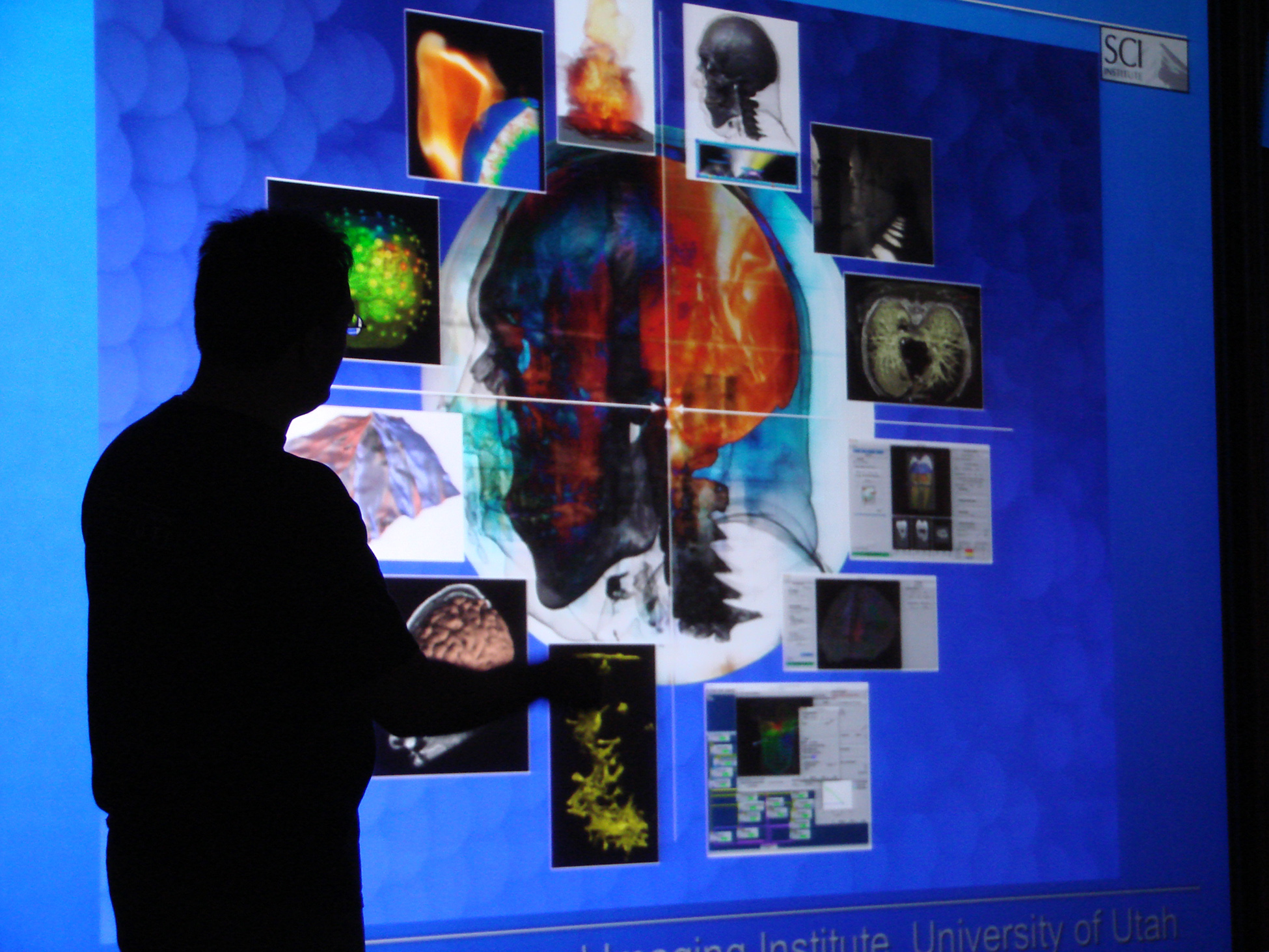
October 31, 2011 – People living in the Beehive State might easily pair the words “Utah” and “ski” in a word association game, but not so much for “Utah” and “SCI.” –something organizers of the new open house called SCIx hope to change. SCIx will take place on November 4th. For a list of presentations and full schedule, visit http://www.sci.utah.edu/scix.
SCI stands for Scientific Computing and Imaging. The SCI Institute at the University of Utah is an internationally recognized leader in visualization, scientific computing and image analysis located on campus at the Warnock Engineering Building. Its overarching research objective is to create new scientific computing techniques, tools, and systems that enable solutions to important problems affecting various aspects of human life.
The keynote speaker for SCIx will be Dr. John E. Warnock, co-founder of Adobe in 1982 with Dr. Charles Geschke. The two men have worked closely together to develop a stream of pioneering software products that leverage Adobe’s strength in transforming how people create, process and engage with information.
“SCIx is open to our academic colleagues and industry partners to explore cutting-edge research in computing, imaging, and visualization at the University of Utah, and most importantly, find new ways our expertise can be combined and exploited,” says Chris Johnson, founder and director of the SCI Institute, which is home to over 200 faculty, students and staff. “We hope SCIx will create opportunities to connect with new collaborators and foster new ways of thinking about complex problems, in a way that will not only help Utah’s and the nation’s economies, but enrich the lives of people everywhere.”
SCIx is an introduction to the SCI Institute’s cutting-edge research. The event was created to strengthen collaboration between the SCI Institute and other academic researchers, and also companies interested in new research and product development.
The SCI Institute has for years been tackling a wide range of scientific challenges that depend on effectively managing, displaying and understanding vast amounts of data. For example, scientific computing at SCI has modeled real-world systems to gain better understanding of electrical currents within the heart, or airflow around an airplane wing.
Effective academic and commercial collaborations have already proven very successful at SCI in projects ranging from neuroimaging to forest fire simulation. For example, groups from the University of Utah’s Comprehensive Arrhythmia Research and Management Center (CARMA), Utah Center for Advanced Imaging Research (UCAIR), MARREK, Inc., and the SCI Institute recently attracted widespread commercial and academic interest in their software inventions related to new personalized health care system for the management of cardiac atrial fibrillation (AF). The new software package, known as CorView, combines image processing, analysis, and visualization tools to help physicians at the University of Utah Hospitals design treatments for AF using MRI imaging. The resulting “Utah Staging” score for each patient guides a tailored approach to AF management, triaging candidates for surgical intervention or pharmaceutical therapy.
Science teachers are encouraged to bring motivated students to the open house to learn about the capacity and breadth of research being undertaken within SCI. “We want industry collaborators—and students in Utah—to know that world-class experience and research expertise is on their doorstep,” says Johnson.
Founded in 1994, the SCI Institute’s roots reach back to the fertile ground of the university’s computer sciences department, which produced computer notables such as Ed Catmull, who founded Pixar, Jim Clark, who founded SGI and Netscape, and John Warnock, who founded Adobe. That legacy has expanded in wholly new ways that the open house will showcase.
More information about SCI and SCIx is available online at www.sci.utah.edu/scix.
